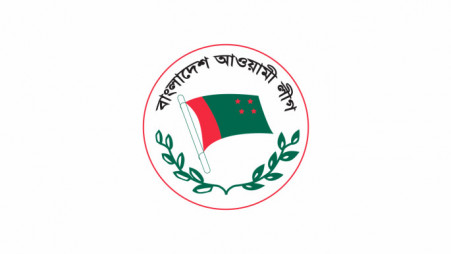What actions govt can take against AL now that it is banned under Anti-Terrorism Act
According to Section 18 of the Act, the government can declare any person or entity as involved in terrorism and ban them through a gazette notification, based on reasonable grounds. Once banned, several legal provisions are triggered under the law.

As the Awami League has been banned under the Anti-Terrorism Act, the government will now be empowered to take a range of legal and punitive actions, including asset seizure, office closure, and criminal prosecution of its supporters and members.
According to Section 18 of the Act, the government can declare any person or entity as involved in terrorism and ban them through a gazette notification, based on reasonable grounds. Once banned, several legal provisions are triggered under the law.
The advisory council yesterday (11 May) approved proposals to include various new provisions in the Act, including banning the media from publishing any press statement in support of or on behalf of the Awami League.
This comes after an amendment to the International Crimes (Tribunals) Act, 1973, to empower the tribunals to try Awami League on charges of genocide and crimes against humanity and punish it if found guilty.
Here are some of the major moves the govt can now take against AL:
Penalties for membership or support
Under Section 8, any person who claims to be or is found to be a member of a banned organisation will be committing a criminal offense. The punishment includes imprisonment for up to six months, or a fine, or both.
Section 9 further criminalises support for banned organisations. Anyone who urges others to support, organises or assists in meetings, delivers speeches, or spreads promotional content for such groups – through print, electronic, or digital platforms – can be jailed for a minimum of two years and up to seven years, with the possibility of fines.
Sheltering members also a crime
Section 14 of the Act states that providing shelter or hiding someone known to be involved in terrorist activity – whether knowingly or with reasonable grounds to suspect them – constitutes a criminal offense. If the primary offense is punishable by death, the person providing shelter may face up to five years in prison and a fine. For lesser offenses, the punishment may be up to three years in prison and a fine.
Immediate family members – spouses, children, or parents – are exempt from this provision. However, if an organisation provides shelter, its top executive (e.g., chairman or CEO) will be held accountable unless they can prove ignorance or due diligence.
Declaring ban and listing
Under Section 18 of the Anti-Terrorism Act, the government is authorised to declare any individual or entity involved in terrorist activities as banned. This can be done through a gazette notification based on reasonable grounds, and the person or entity will be listed in an official schedule.
The government also holds the power to amend this list, either by adding or removing individuals or organizations, or making other modifications as needed.
Freezing assets, shutting operations
Under Section 20, once an entity is banned, the government can: shut down the organisation's offices; freeze all bank and financial accounts; seize its assets; restrict the travel of its members; confiscate promotional materials (posters, banners, digital content); and ban press conferences or public statements issued on behalf of the organisation.
Additionally, the banned entity must submit its income and expenditure records to a government-assigned authority, disclosing all sources of funding.
If any of the banned entity's properties are found to be illegally acquired or used in terrorist activities, the court may confiscate them in favour of the state.



 Keep updated, follow The Business Standard's Google news channel
Keep updated, follow The Business Standard's Google news channel
















